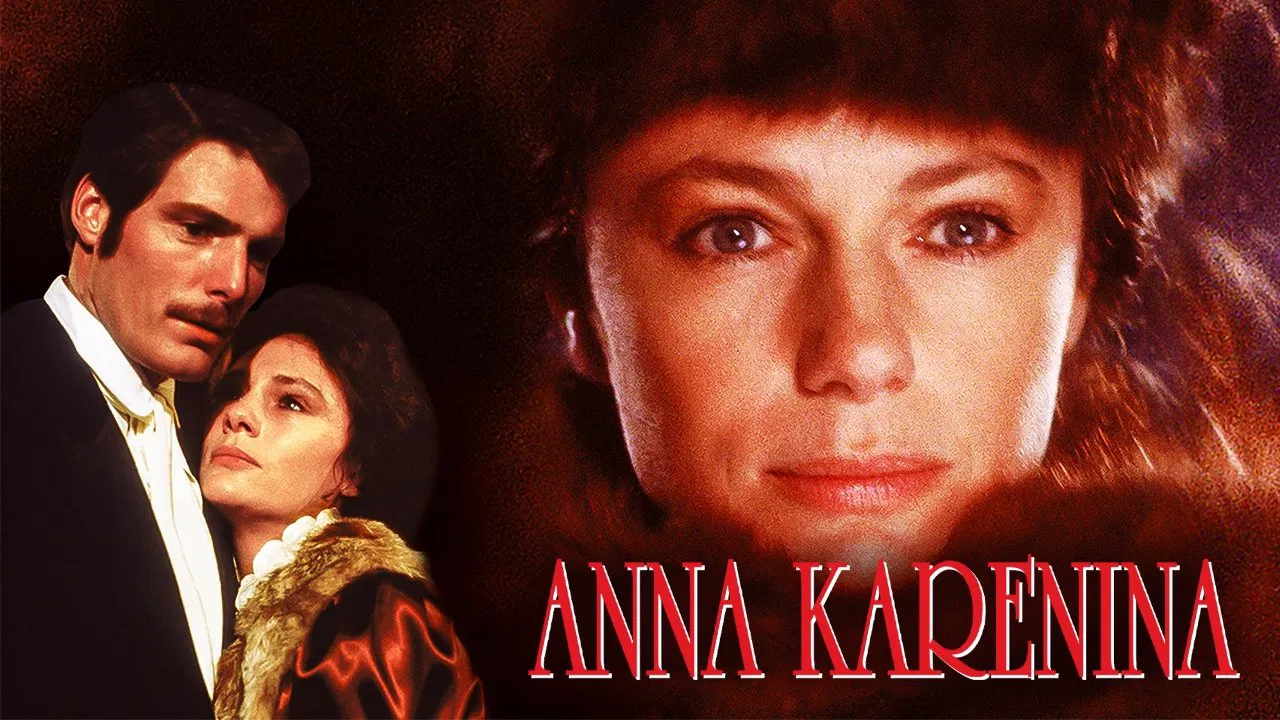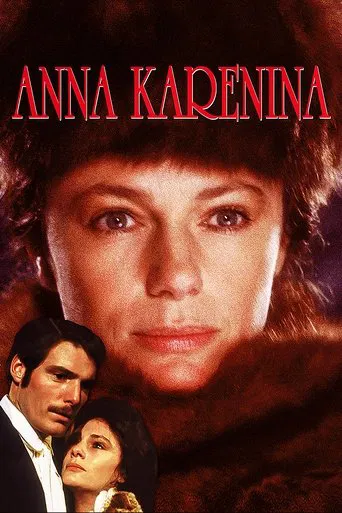Inclubabu
Plot so thin, it passes unnoticed.
Dynamixor
The performances transcend the film's tropes, grounding it in characters that feel more complete than this subgenre often produces.
Humbersi
The first must-see film of the year.
TheLittleSongbird
Of the numerous versions of Tolstoy's Anna Karenina, my personal favourite will always be Greta Garbo's (even if it has a couple of shortcomings, namely Fredric March's Vronsky), with Vivien Leigh's also being very good, and the Joe Wright-directed version faring weakest despite the excellent production values and Karenin. This Anna Karenina has a good amount to like, while also falling short, one of the weaker adaptations while hardly disgracing itself.The story is given very lavish treatment here, with very elegant photography for a made for TV film, lavish sets and splendidly colourful costumes. It's nicely directed, the dialogue flows well and is intelligent and poignant and of the key scenes the colourful ballroom scene stands out and while the suicide scene is not as heart-rending as in Garbo's version it still brings a lump to the throat. The cast are impressive, and the performances equally so. Ian Ogilvy, Anna Massey and Joanna David are dependable in roles well-suited to them and their talents, their roles are not huge due to compressions but they are still believably solid. Of the three leads, Paul Scofield is particularly good as a particularly reptilian Karenin (a character played consistently well in all four versions personally seen), while Jacqueline Bisset's interpretation of Anna is very heartfelt and dashing Christopher Reeve gives one of the better performances of Vronsky on film (a character very problematically cast and performed in the other three versions, especially in the Joe Wright film). Reeve and Bisset's chemistry does convince, there is a sense that these two characters would give up everything for one another which makes the events in the latter half even more devastating.However, Anna Karenina (1985) does feel too short, two and a half hours seems a long time but with such a big story and this much abridged it did seem the case here, and also too rushed. The story has many moments where it's passionate and moving, but it would have made more of an impact if the pace had slowed down (personally wanted more time to breathe and take in the atmosphere more) and the length was longer. The omissions (including major characters that are at best mentioned once or twice) and that it's very condensed gives a slightly bland and skimmed over, on-the-surface feel, the most significant details are here, the spirit and the full emotional punch isn't quite so much. Also the music score is rather routine and pedestrian, not necessarily distracting but at the same time there's nothing here that's special or memorable.All in all, a decent adaptation with a lot of good merits but it's not my favourite adaptation of Anna Karenina. 6/10 Bethany Cox
James Hitchcock
As with a number of other famous novels, the broad outlines of the plot of Tolstoy's "Anna Karenina" are well-known even to many people who have not read the original book. A beautiful, vivacious young woman, unhappily married to a dull older man, begins an adulterous affair with a dashing young man, but fails to find happiness through adultery and ends up committing suicide. Actually, that could also be the plot of a number of other 19th century novels; my above synopsis would, for example, also fit Flaubert's "Madame Bovary", except that Emma Bovary had two lovers rather than one. Tolstoy's novel has been adapted for the cinema and for television many times, and I watched this version when it was shown recently for the purposes of comparison with Joe Wright's interpretation from last year. (The only other version I have seen was that old Greta Garbo one from the 1930s). Although this is quite a long film, at around 2½ hours, the story as told here is very much abridged from the original novel. The Levin/Kitty subplot is virtually omitted, and Levin does not even appear, although Kitty is an important character in the early scenes because of her unrequited love for Vronsky. Wright's version had two major faults in my eyes. One was his eccentric concept of presenting the action as though it were taking place on a stage, something which seemed to waste a lot of the potential of Tolstoy's story. More than just a domestic tragedy, it is also a grand epic of Russian society in the late nineteenth century, and Wright's film only fitfully captured this sense of epic grandeur. The second was that, apart from Jude Law's Karenin, none of the main parts were particularly well acted. Keira Knightley's Anna was bland, and Aaron Taylor-Johnson seemed totally miscast as Vronsky, less a sophisticated man of the world than a schoolboy desperately trying to grow his first moustache.This TV film, by contrast, is made in a straightforward "heritage drama" style, and there are no gimmicks for the sake of trying to be different. The acting is also better. Jacqueline Bisset as Anna occasionally commits the sin of failing to speak her lines clearly enough, but on a deeper level she leaves us in no doubt that this is a woman in the grip of powerful, and potentially tragic emotions, something which did not always come through clearly in Knightley's interpretation. The late Christopher Reeve is, of course, best remembered as Superman, but he also had a sideline in costume drama, and this is one of a number of such films in which he acted. (Others include "Somewhere in Time", "The Bostonians" and "The Remains of the Day"). He came much closer to my idea of a handsome, dashing Russian aristocrat and cavalry officer than did Taylor-Johnson. From today's viewpoint it is painful to watch the scene where Vronsky falls from a horse during a race, as it recalls Reeve's own tragic riding accident ten years later which was to leave him paralysed. It was, apparently, while preparing for this movie that he first learned how to ride. As I stated above, I felt that Jude Law gave the best acting performance in Wright's version, but here that great actor Paul Scofield is even better. The two interpretations are quite different. Law's Karenin is not altogether unsympathetic, being neither a stony-hearted villain nor religious hypocrite, merely the sort of respectably decent husband who can inspire respect but not love. Scofield, by contrast, is cold and reptilian, a man devoid of passions unless possessiveness and vindictiveness can be regarded as such.This version has its faults; I think it would have been better if room had been found for Levin, one of Tolstoy's major characters. Nevertheless, I found it better than Wright's film, if only because it shows that, sometimes, the best way to tell a story-in the cinema as in other media- is to do so in a straightforward way, without the need to be too clever or to resort to gimmicks. 7/10
Jackson Booth-Millard
Based on Leo Tolstoy's great romance novel, this made-for-TV film is a terrific story. Basically already married Anna Karenina (Jacqueline Bisset) dances with Count Vronsky (a good performance by the late great Christopher Reeve), and not long after they fall in love. The bastard husband Karenin (Paul Scofield) is unaware for a while that Anna is carrying Vronsky's child. Months later, after finding out, she seems to be dying from after-pregnancy fever, and she said that she will live and leave Karenin. Another few months later though she lives and moves in with Vronsky with her new daughter. To make them really happy though they want the husband to divorce, and give her the son she left behind. A great romance, ruined towards the end with both the husband, loss of the son, and the dream Anna had that came true where she kills herself with a train! Also starring Ian Ogilvy as Stiva, Anna Massey as Betsy, Joanna David as Dolly, Judi Bowker as Kitty, Valerie Lush as Annushka and Nicholas Selby as the Doctor. Good!
enthusiast
When Count Vronsky, played by Christopher Reeve, falls off his horse in the race scene I shiver; knowing that is how that fine young man was later incapacitated in real life. It is absolutely chilling!! This is not the greatest adaptation of the novel Anna Karenina but it is certainly the most memorable due to the fate of the actor!!

